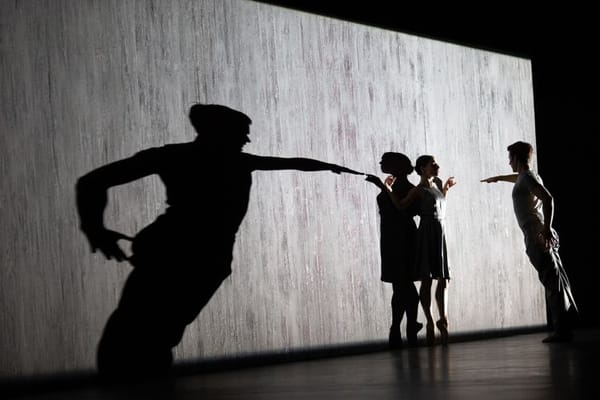Death of a Salesman
The stellar cast unfortunately fails to sell the classic script

4 stars
Written by the iconic Arthur Miller, Death of a Salesman is often hailed as one of the best plays of the 20th century. Adding to its fame, the play recently made the news when the roof of the theatre ‘collapsed’ on the audience twenty minutes into the show, a mere 48 hours after my own viewing.
Death of a Salesman chronicles the ascending to madness of Willy Loman, a failing salesman (of an unknown product) from New England who is plagued with disappointment; in himself, in his son Biff, in life itself.
Directed by Marianne Elliott and Miranda Cromwell, the production is absolutely stunning from start to end. The transitions between the flashbacks and real-time are beautifully orchestrated, flowing naturally and blending into one another at just the right moments. The lighting plays a big part in this, which, on the whole, is perfect, reflecting the mood of the play throughout, changing and developing as the characters and the plot do too.
Making the creative decision to centre the play around an African-American family really pays off. The core message of the script is still intact, however, some lines acquire deeper meaning and relevance thanks to this switch. Although the script is true to Miller’s original, blending it with Jazz and Gospel music, genres associated with the African-American culture, added further authenticity to this new version.
Acting is also overall very strong, particularly from the Suits star Wendell Pierce who portrays a desperate, delusional Willy Loman. Sharon D. Clarke proves why she is currently one of the most acclaimed actresses on the West End once again, performing the role of Linda Loman, the loving wife, riveting and extremely real.
So, why did I leave the show feeling a bit let down? Especially during the second act, I found myself checking my clock, wondering how much longer they would take to wrap things up. With a runtime of three hours, it’s difficult for a play to not feel long. However, I felt that the script was often circling around the same points and taking too long to reach any real conclusions.
Overall, Death of a Salesman is pretty darn great. Despite the often-long-winded ways the script ops to tell its story, it is staged so brilliantly in all aspects which makes for a mostly thrilling night at the theatre. Just be mindful of the ceiling.









